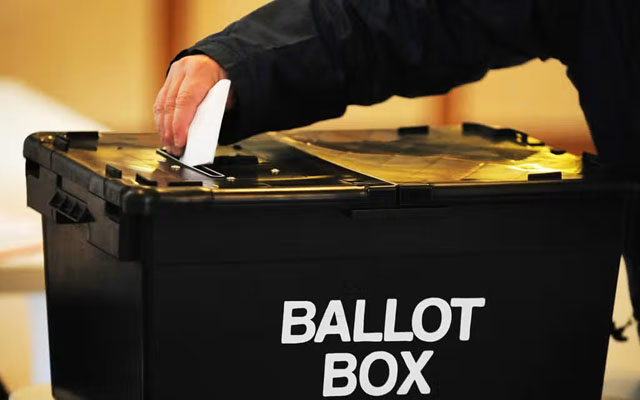
LONDON, Dec 19, 2023 (BSS/AFP) - British Prime Minister Rishi Sunak is expected to call a general election at some point in 2024, but exactly when is becoming a source of increasingly fevered speculation among political observers.
- When is the vote due? -
The maximum term of a UK parliament is five years.
The last nationwide vote took place on December 12, 2019. The next election has to happen by January 28, 2025, five years since the current parliament first met after allowing time for campaigning.
- How is an election called? -
Sunak will formally ask head of state King Charles III to "dissolve" parliament, almost certainly travelling to Buckingham Palace to do so.
Tradition dictates that the prime minister -- the leader of the biggest party in parliament -- then announces the election to the nation from outside Number 10 Downing Street.
- What happens next? -
The announcement fires the starting gun on five weeks of campaigning. Current members of parliament (MPs) lose their status and become candidates if they are running for office again.
The government enters a "pre-election period", previously called "purdah", which restricts what it can do before the next government is elected.
- How is the election decided? -
England, Scotland, Wales and Northern Ireland -- collectively, the United Kingdom of Great Britain and Northern Ireland -- are split into 650 constituencies.
Voters in each are permitted to cast their ballot for one candidate under the "first-past-the-post" system.
The candidate that wins the most votes in each constituency or seat is elected to parliament to represent that area.
If a party secures a majority of at least 326 seats, then it forms the government and its leader becomes prime minister.
If no party crosses that threshold, then the one with the most MPs usually forms a coalition with a smaller group, as the Conservatives did with the Liberal Democrats in 2010.
- When might Sunak take the plunge? -
The Institute for Government think tank says there are three likely windows for the vote: May 2024, autumn 2024, and January 2025.
Holding it in May, alongside scheduled local elections, would avoid the risk of bad results in those polls damaging the government's reputation beforehand.
There has also been speculation that Sunak may be tempted to call an election earlier if right-wing Tory rebels threaten to bring him down over failure to toughen up his plan to send migrants to Rwanda.
An autumn election, likely in October so as not to clash with the US election, would buy Sunak more time to meet his key pledges of growing the economy, slashing National Health Service waiting lists and stopping migrant boats.
It would also get Sunak close to two years as prime minister, which sounds a lot better than 18 months and may mean something to him.
Winter elections are rare in the UK and a campaign over Christmas would hardly be popular with voters and candidates, meaning January is probably the least likely of the three scenarios.
Ultimately, though, Sunak will plump for whenever he feels has the best chance of success.
- Which party is likely to win? -
The Conservatives, in power since 2010, have consistently trailed the main opposition Labour Party by double digits in most opinion polls for well over a year now.
That is largely due to the worst cost-of-living crisis in decades and Tory infighting that has resulted in five prime ministers since the 2016 Brexit vote, rather than overwhelming enthusiasm for Labour.
The smart money then is on Labour leader Keir Starmer becoming the next prime minister.
But with potentially more than a year before polling day, a lot could happen to tighten the race.
The Tories might feel that their best chance comes from apathy among voters for both leaders -- which could result in a "hung parliament", when no party secures a majority.